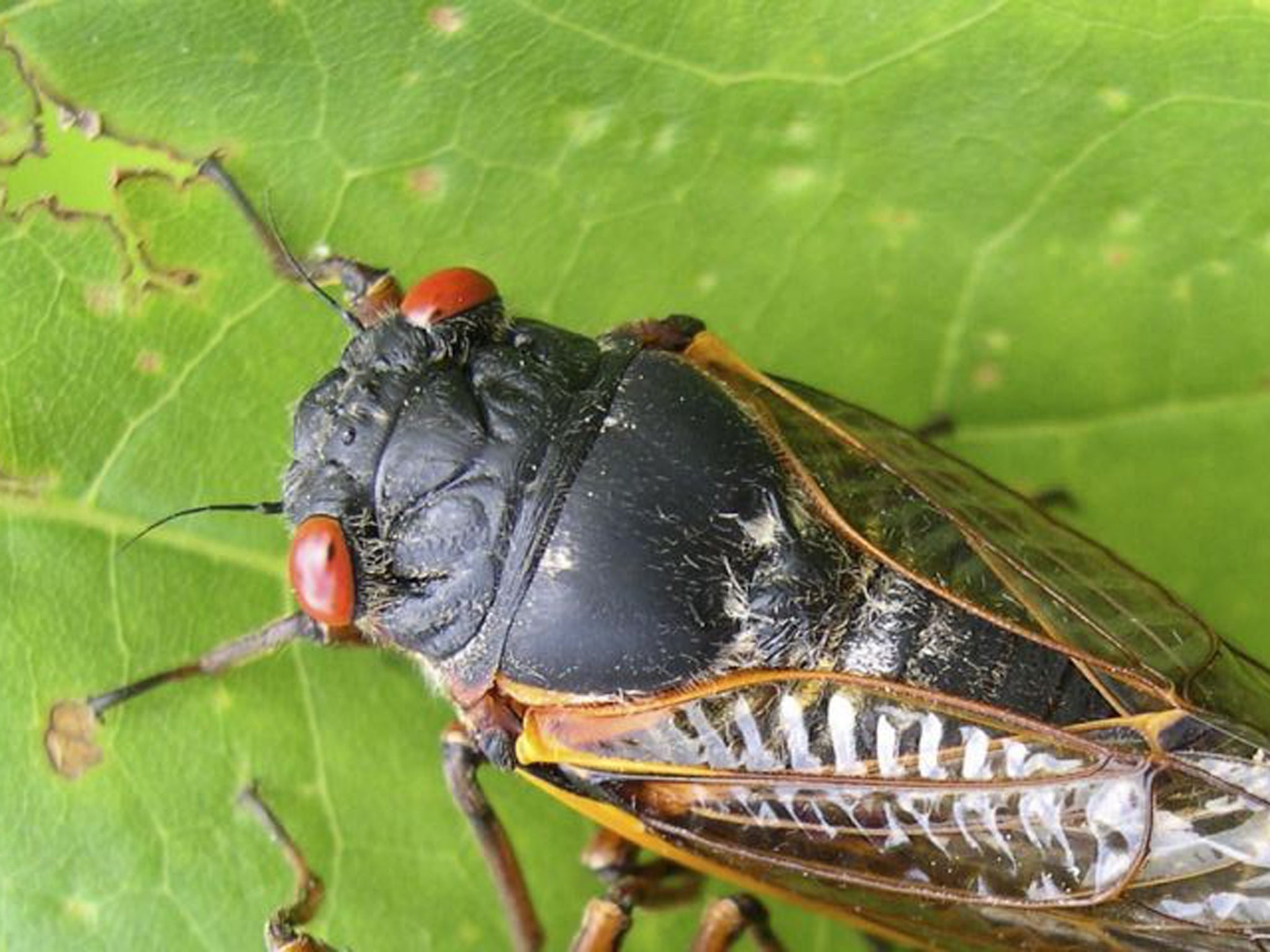Cicada invasion on the way as insects with bulging red eyes crawl out of the earth after 17 years underground
US East Coast prepares for an orgy of singing and mating from billions of bugs

Your support helps us to tell the story
From reproductive rights to climate change to Big Tech, The Independent is on the ground when the story is developing. Whether it's investigating the financials of Elon Musk's pro-Trump PAC or producing our latest documentary, 'The A Word', which shines a light on the American women fighting for reproductive rights, we know how important it is to parse out the facts from the messaging.
At such a critical moment in US history, we need reporters on the ground. Your donation allows us to keep sending journalists to speak to both sides of the story.
The Independent is trusted by Americans across the entire political spectrum. And unlike many other quality news outlets, we choose not to lock Americans out of our reporting and analysis with paywalls. We believe quality journalism should be available to everyone, paid for by those who can afford it.
Your support makes all the difference.This year heralds the invasion of billions of cicadas, with their distinctive black bodies and bulging red eyes set to overrun a 900-mile stretch of the US East Coast as the insects crawl out of the earth after 17 years underground.
Residents of the southern state North Carolina to those in Connecticut in the North East will be outnumbered by roughly 600-to-1 by the swarm.
The one inch (25 mm) bugs, in wingless nymph form, who have been only a few feet underground and biding their time are looking for just one thing: sex.
And they will make a big racket, too. The noise all the male cicadas make when they sing for sex can be infuriating with the noise levels measured reaching 94 decibels as recorded by Gene Kritsky, an entomologist at the College of Mount St Joseph in Cincinnati.
Since 1996 the bugs have been developing underground as juveniles and are set to arrive in May or June this year as soon as the soil temperature exceeds 18C. After a few weeks up in the trees, they will die and their offspring will go underground, not to return until 2030.
“There will be some places where it's wall-to-wall cicadas,” says University of Maryland entomologist Mike Raupp.
The males come out first — think of it as getting to the singles bar early, Raupp says. They come out initially as nymphs, which are essentially wingless and silent juveniles, climb on to tree branches and molt one last time, becoming adult winged cicadas. They perch on tree branches and sing, individually or in a chorus. Then when a female comes close, the males change their song, they do a dance and mate, he explained.
The males keep mating and eventually the female lays 600 or so eggs on the tip of a branch. The offspring then dive out of the trees, bounce off the ground and eventually burrow into the earth, he says.
One theory behind their bizarre but sustainable life cycle is that their emergence produces such overwhelming numbers at once that predators, such as birds, spiders, snakes, and even dogs, cannot eat them all.
There are ordinary cicadas that come out every year around the world, but these are different. They are called magicicadas - as in magic - and are red-eyed. And these magicicadas are seen only in the eastern half of the United States, nowhere else in the world.
This year's invasion, Brood II, is one of the bigger ones. Several experts say that they really do not know how many cicadas are lurking underground but 30 billion is estimated.
Despite scientists' horror film name for the infestation, Brood II, the insects do not sting or bite and are harmless to crops.
Join our commenting forum
Join thought-provoking conversations, follow other Independent readers and see their replies
Comments